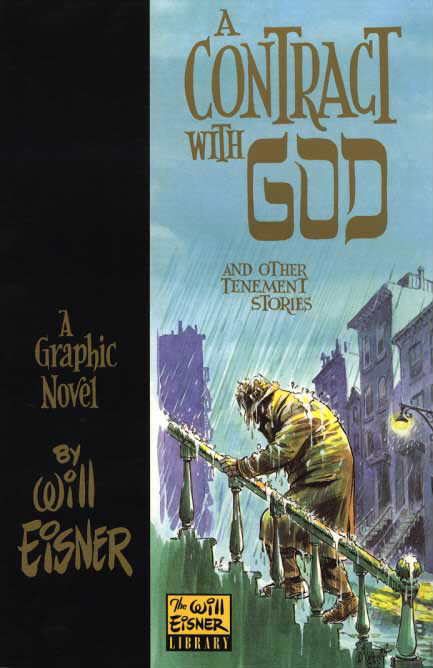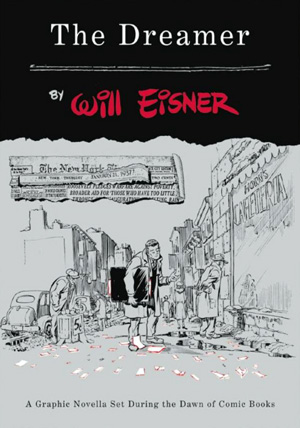When Cliff Galbraith and I started putting together WILL EISNER WEEK, we knew there were certain people we wanted to talk to. Dave Gibbons, Paul Levitz and Danny Fingeroth were three of them.
Levitz, in fact, is working on a book about the comics master: “Will Eisner: The Dreamer and the Dream,” to be published next year by Abrams ComicArts.
“When I began working on a book about Will Eisner and his influence, his unique impact was obvious, but the path to it was far harder to define,” said Levitz, the former head of DC Comics. “‘A Contract with God’ is a wonderful book, but it was neither the ‘first’ American graphic novel, nor was Will the person to coin that term.
“It was published in a burst of books that took steps towards the evolution of the graphic novel form, yet it had a very special effect on the creative community for its obvious literary ambitions and for the courageous choices Will made in its path to publication,” he explained. “And perhaps equally important, after its publication, Will went on to continue exploring the graphic novel form and taking a unique role in popularizing it, including his active work on the awards that bear his name. Regardless of how we debate the firsts in the field, there’s no debating that Will Eisner was truly the champion of the graphic novel.”
Gibbons, the famed artist most famous for “Watchmen,” said, “There’s always something new to discover and I just love bathing in the atmosphere he creates.”
He named “The Last Trolley” — a Spirit tale — as his favorite: “From the fantastic overhead shot on the splash page with the airborne titles, through the evocation of the rocking motion of the trolley, the wonderful characters and body language, to a great twist ending, it has everything!”
Fingeroth, one of comics’ top historians, noted Eisner’s more cerebral contributions to the form.
“Will Eisner was crucial to the development of the comic book and the modern graphic novel, as well as to the use of comics in education, and the teaching of comics in colleges and universities,” he said to Cliff. “His innovations and contributions were so colossal that people tend to take them for granted as if they were part of the landscape and not the results of the inspired work of some genius pioneers, among whom Will was one of the most significant. Plus, his stories, from The Spirit to “A Contract with God” and beyond are just great comics!
“In addition, Will was a tireless advocate for the comics medium and the retailers who sell comics. He was a big reason comics and comics-related culture are so prominent today,” he noted.
“From the first time I saw Eisner’s work in Jules Feiffer’s book, “The Great Comic Book Heroes,” then later on in the Harvey, Warren, and Kitchen reprints, and then the graphic novels, starting with “A Contract with God” through “To the Heart of the Storm,” “The Dreamer,” and on and on, his work touched me profoundly, and I want to share that with people, especially those who may not know that much about his enormous and varied body of work. On a personal level, I met and worked briefly with Will, and he was extremely generous and considerate with his time and insights, which meant and continues to mean a great deal to me.”



